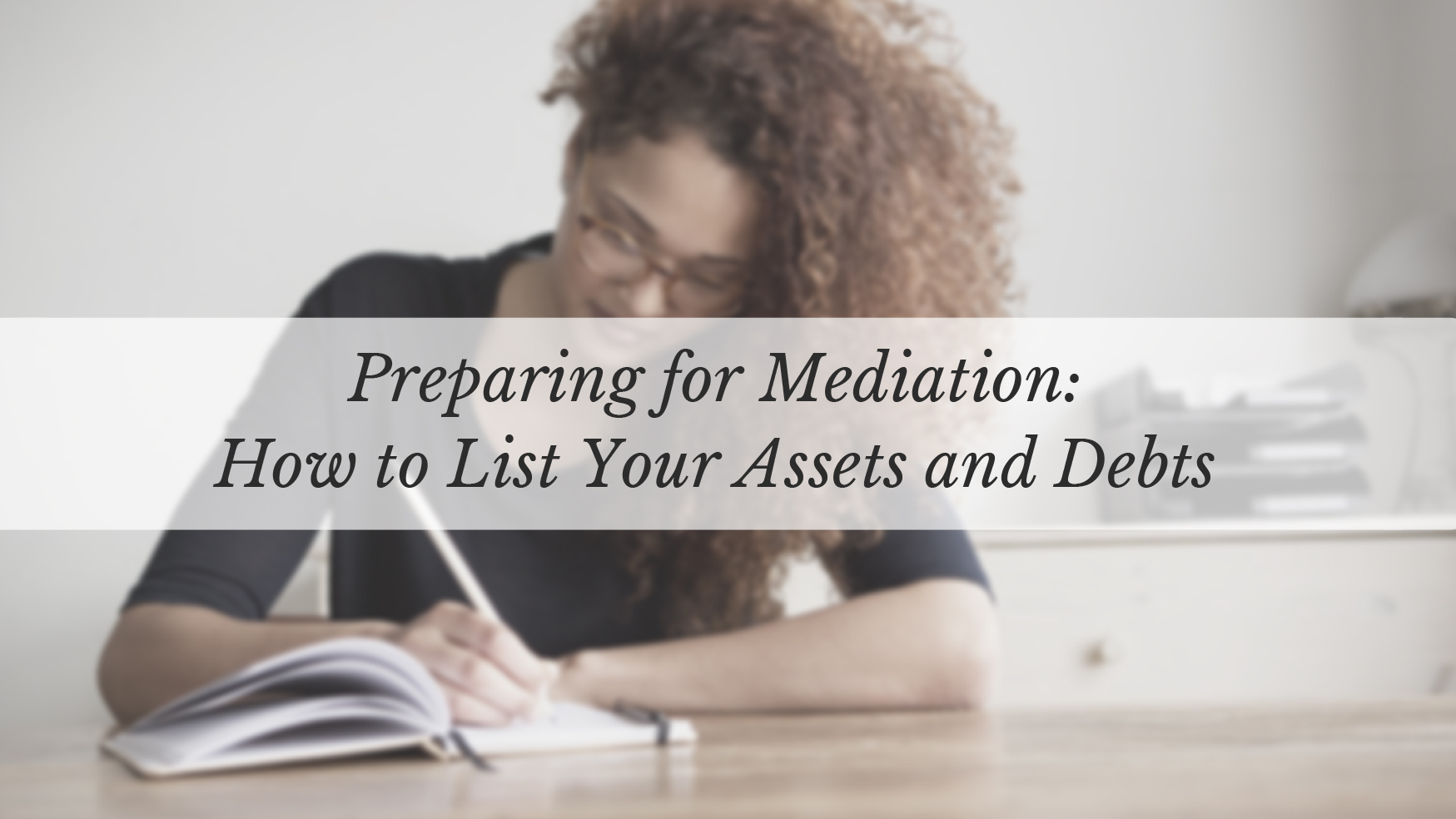Preparing for Mediation: How to List Your Assets and Debts
In order to have successful mediation sessions and make well-informed decisions, you’ll want to come prepared with a comprehensive list of all of your assets and debts. Without this, you and your ex-partner are left disputing the “what-ifs” and “maybes” without knowing exactly what you’re dividing.
At this time Natalie is offering mediation services only
In order to give you a leg up on this process, we’re outlining how you should list your assets and your debts below. Get ready to deep dive into your finances and keep reading below to get organized before your divorce mediation starts:
Assets
Marital assets mean any and all property that is obtained during the marriage, regardless of who holds ownership or title. These can include things like houses, bonds, stocks, cars, and pensions, among others.
When you’re preparing to identify all your assets, review this list to ensure you’ve covered all the bases:
- All bank accounts
- Any real estate
- Brokerage accounts, stocks, bonds
- Retirement accounts
- Pensions
- Household items and furniture
- Valuable jewelry
- Cars
- Boats
- Additional Vehicles (Mopeds, motorcycles, scooters)
- Technology
Debts
Debts, on the other hand, are any amounts still owed from within the marriage. Typically, debt incurred outside of marriage is still the responsibility of that individual and is not divided between the two. Any debt that is incurred within the marriage, however, even if it is only in one spouse’s name, could be seen as “community property” when considered during mediation.
Don’t forget these items when listing your debts:
- Credit card accounts owed
- Student loans
- Mortgages
- Vehicle loans
- Loans from 401K, IRA, or alternative retirement accounts
- Unsecured loans
While this list may be sufficient for some mediating individuals, it won’t cover every single base. Before getting into the mediation process, it’s a good idea to review this with a financial advisor or accountant to ensure they are complete. Your mediator may also be able to tell you what you’ll need to come prepared with.
The Mediation Choice
Mediation is a great amicable alternative to litigation. It means no additional mess brought in by lawyers or a judge. It means a quicker process and finding your independence sooner. It means a healthy way to end your marriage and move on.
Considering mediation? Call the experts at Natalie Baird Mediation and Collaborative Divorce to discuss your case or schedule a consultation.

